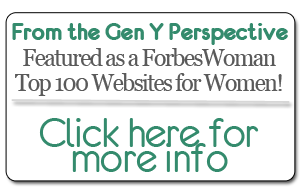 Everyone should have mentors. It only helps you in your career (and life) if you have someone who can share their own experiences, learnings, and battle scars with you. You won’t avoid mistakes, but the idea here is that you may be able to avoid making the mistakes they made. Women also can benefit from having champions and sponsors, especially in their professional careers. Those people go to bat for you and help you navigate tricky organizations.
Everyone should have mentors. It only helps you in your career (and life) if you have someone who can share their own experiences, learnings, and battle scars with you. You won’t avoid mistakes, but the idea here is that you may be able to avoid making the mistakes they made. Women also can benefit from having champions and sponsors, especially in their professional careers. Those people go to bat for you and help you navigate tricky organizations.
However, people just don’t utilize mentors the way they should. For many, it can feel like there just isn’t anyone out there to help. Some wait for a relationship to happen organically. Others might look for a mentor with too specific experiences and end up missing out on the great people they to whom they could already be connected.
Nearly one out of every five women in the United States does not have a mentor.
LinkedIn (NYSE:LNKD), the world’s largest professional network with more than 120 million members worldwide, today released the findings of a study it conducted to learn more about women and their attitudes toward mentoring. The survey results were unveiled during the Pennsylvania Conference for Women, the largest women’s conference in the state with more than 5,000 attendees. LinkedIn is the conference’s exclusive connection sponsor and LinkedIn’s Connection Director, Nicole Williams, is speaking at the event.
“Tooting your own horn is just one of the many ways you can increase the likelihood that you’ll shatter the glass ceiling and snag keys to that corner office,” said Williams. “If you’re uncomfortable speaking up about your accomplishments, then often times, your best bet is to seek out a sponsor or a mentor in your office who can vouch for you.”
LinkedIn surveyed nearly 1,000 female professionals in the U.S. and found that 19 percent of respondents had never had a mentor. LinkedIn asked the women who hadn’t had a mentor why that was the case. Fifty-two percent of the women noted they hadn’t had a mentor because they had, “never encountered someone appropriate.” As part of the survey, LinkedIn also asked the women who had never been a mentor why they weren’t mentoring another professional, and sixty-seven percent of those respondents said they have never been mentors because, “no one ever asked.”
“Waiting in the wings for a mentor to discover you or hoping that your company will implement a mentoring program aren’t your only options,” said Williams. “Take control of your professional life and use LinkedIn to search for professionals by title and find potential mentors in your zip code.”
An interesting sign of encouragement from the research is that more women taking the time to mentor other women:
- More than half, 51 percent, of the Gen Y women (females between 18-29 years old) LinkedIn surveyed noted that they are being or have been mentored by women.
- Forty-three percent of Gen X females (women between 30-44 years old) noted that they are being or have been mentored by women.
- Only 34 percent of Boomers (females between 45-66 years old) noted that they are being or have been mentored by women.
It is incredibly important to go out and find your own mentors. I subscribe to the belief of building your own personal board of directors. They are the people who can help you with their own advice and experience, but they can come from all walks of life. Have someone who has a finance background when you are a marketer. They will look at the world differently and you will appreciate their insight.
Additionally, you have the opportunity to step up and be a mentor yourself. You may not think that you have experienced anything special that is worth sharing with someone, but you would be wrong. I find that I mentor in all different ways: helping high-school students figure out what they want to “be” when it seems like they have to make the choice too early, speaking to undergraduate women at Duke and helping them find their future, or even sharing stories with a Women in Leadership and Philanthropy Council. While I may get asked to mentor, many times I offer. You can always offer your own time, no one is stopping you.
LinkedIn’s survey results revealed the most important reasons why women depend on their professional network:
- Professional guidance
- Recommendations
- Career advancement
- Collaboration
Are you connecting with mentors? Are you being a mentor? Take a look at the list above and ask yourself, am I taking advantage of everything that is at my fingertips?
Image by adopt a negotiator via Flickr




